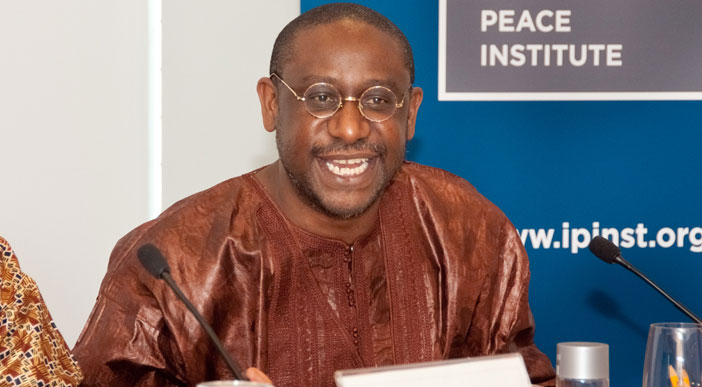
At the Conference of Berlin in 1885, major European states divided Africa into their colonial possessions. At an IPI event launching his new book, The Curse of Berlin: Africa After the Cold War, author Dr. Adekeye Adebajo said the decision to freeze the shifting borders in 1960 may have been “wise in a sovereignty-obsessed era of insecure, unconsolidated nation states,” but, as he writes in the book, “these decisions have had long-term consequences, ultimately mobilizing earlier generations of African leaders to promote African independence and to seek control over their destiny in a more equitable global structure.”
“Africans must now, fifty years later, muster the ingenuity to craft new arrangements that better reflect their own current realities,” said Dr. Adebajo, who is Executive Director of the Centre for Conflict Resolution, Cape Town and former director of the Africa Program at IPI when it was known as the International Peace Academy (IPA). “Federations and regional trade blocks must be negotiated, and territorial boundaries agreed, in the long term, that reflect the political, socio-economic and cultural realities of a vast continent and help to avoid future conflicts.”
Also speaking at the October 25th event was Professor Ali A. Mazrui, the distinguished scholar of post-independence Africa to whom Dr. Adebajo dedicates this book.
The event was moderated by Adonia Ayebare, Director of IPI’s Africa program.







